![]()
Traditional And Healthy Tea For You

Nestled in Liudu Zhonghua Village, Meitan County – China’s #1 tea-producing region – our 18.46-hectare garden thrives at 3,600 feet elevation. Here, the Yangtze River’s tributaries and karst limestone soil create a UNESCO-recognized microclimate, where tea trees grow alongside wild gingko and orchids. For 5 generations, the Wang family has farmed these slopes using methods older than the Great Wall:
Natural Pest Control: The natural protective network formed by minute pirate bugs and clover
Zero Irrigation: Roots dig 30ft deep to drink from mineral springs
Hand-Harvest Calendar: Only 8am-5pm picking to preserve leaf enzymes
Available in 3 stewardship tiers – from seasonal tasters to multi-year custodians
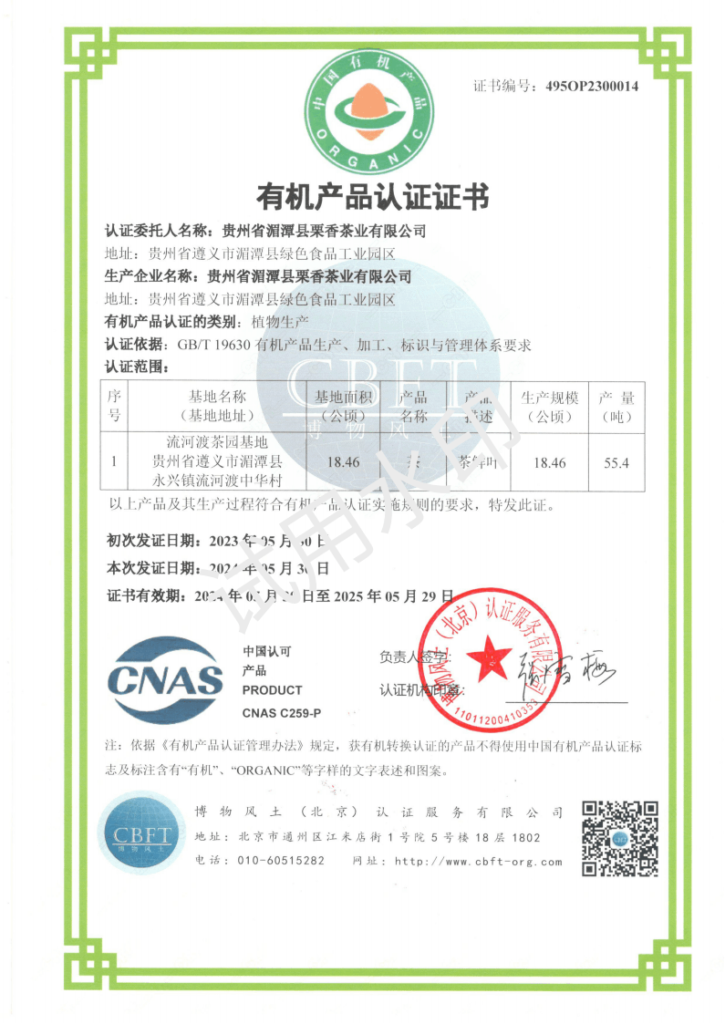

While many claim “organic,” we’re validated by the world’s strictest auditors:
China Organic Certification (CNAS-ILAC): Annual surprise inspections covering all 528 pesticide residues
EU Organic (No. DE-ÖKO-069): Meets Germany’s Bundesprogramm Ökologischer Landbau thresholds
Step 1: Dawn Harvest
Workers (all local villagers earning 3× minimum wage) handpick “two leaves and a bud” before photosynthesis peaks.
Step 2: 3-Hour Freshness Lock
Leaves race via electric cargo tricycle to our onsite factory within 180 minutes.
Step 3: 18-Step Crafting
Under Master Liu (40 years’ experience), leaves undergo:
Withering on bamboo trays
Charcoal roasting in Ming-style kilns
48-hour moisture stabilization

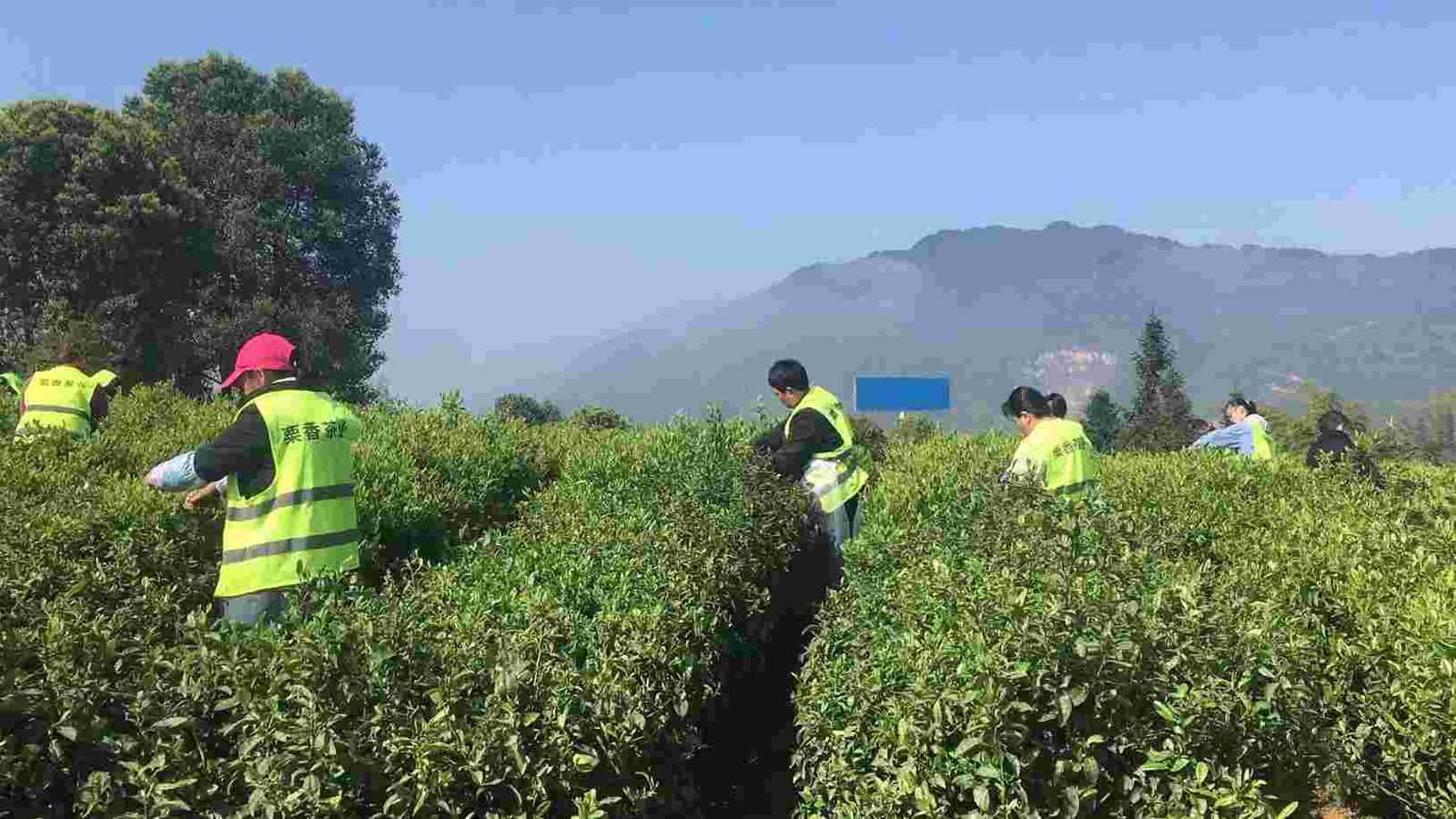
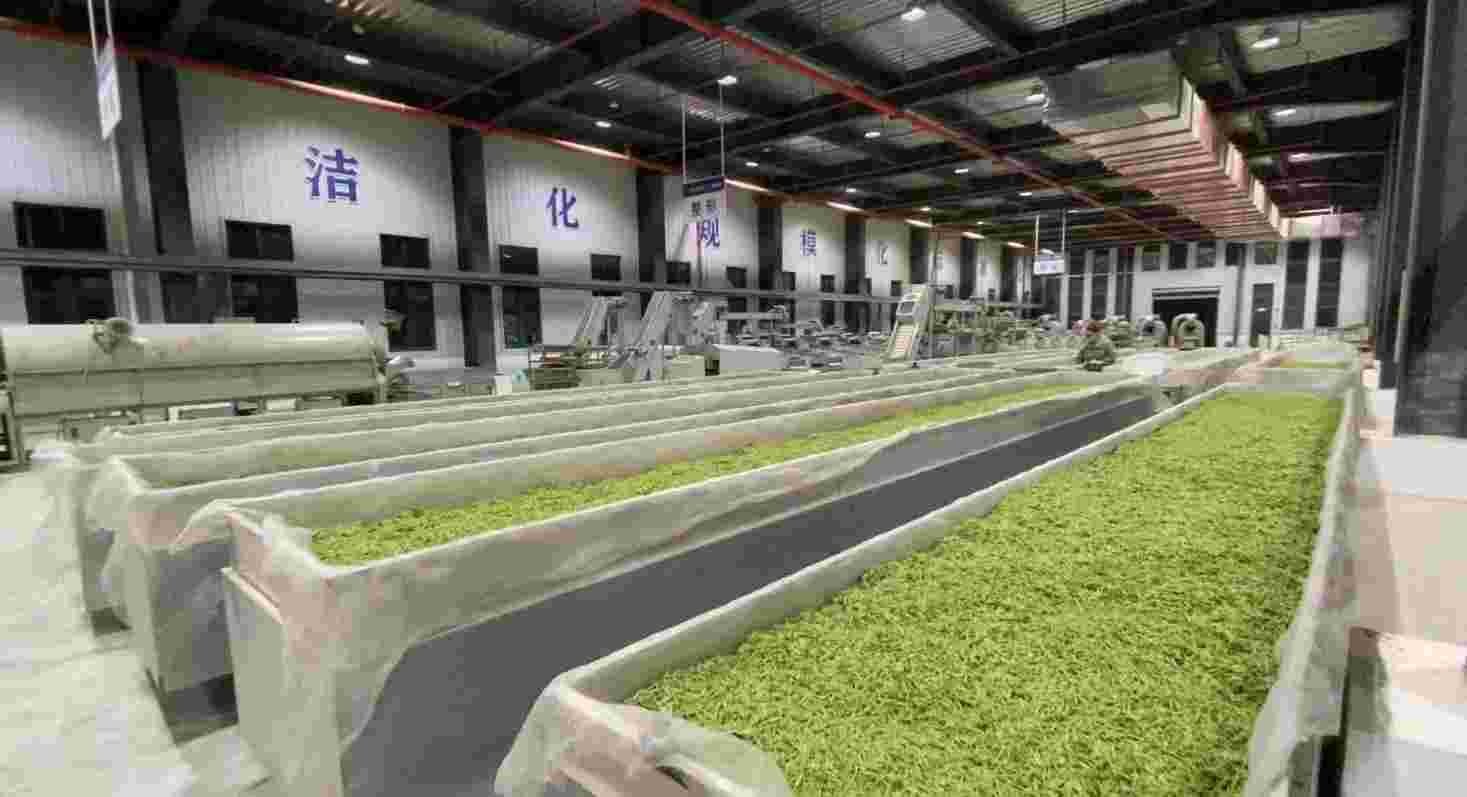

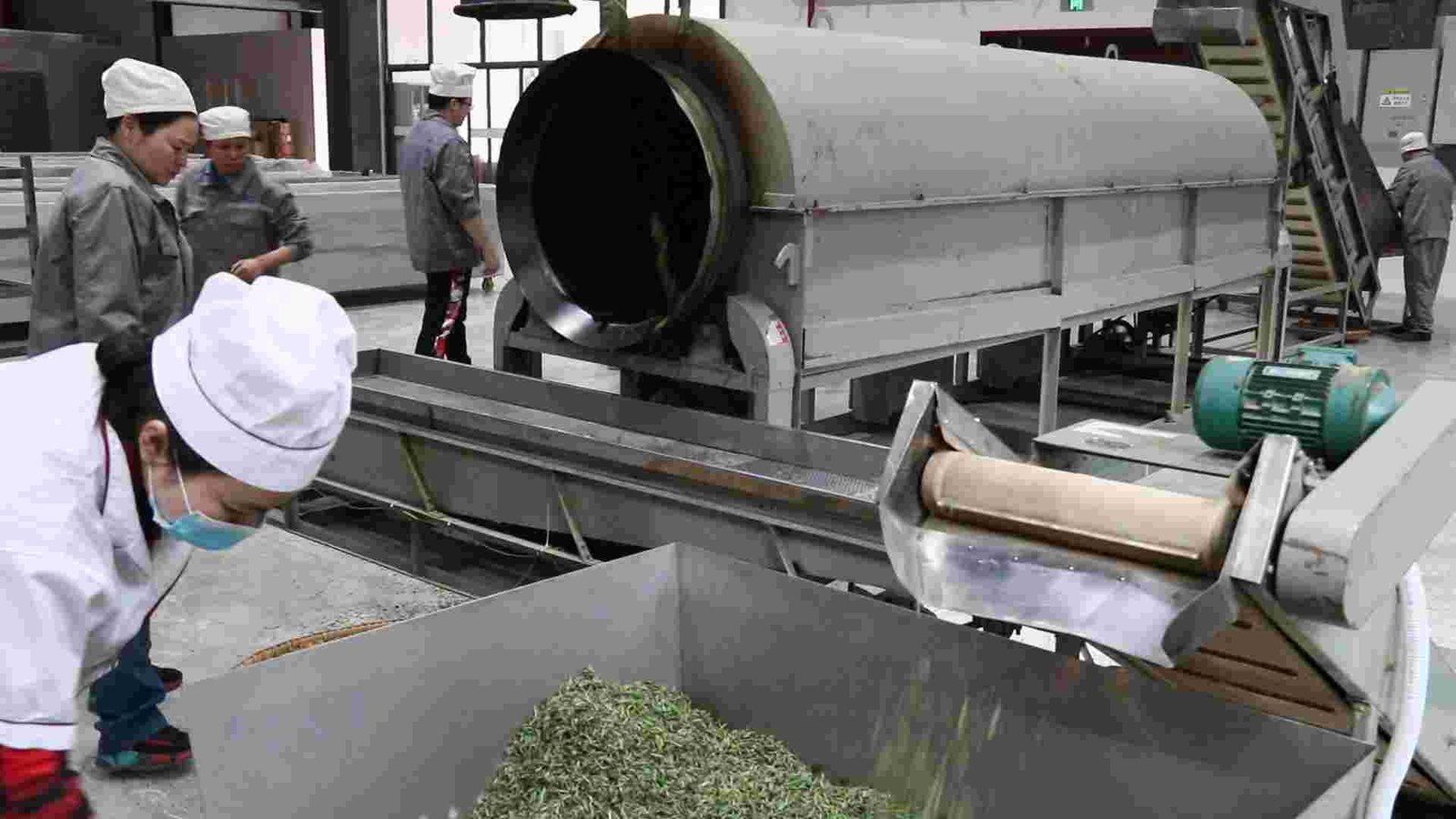
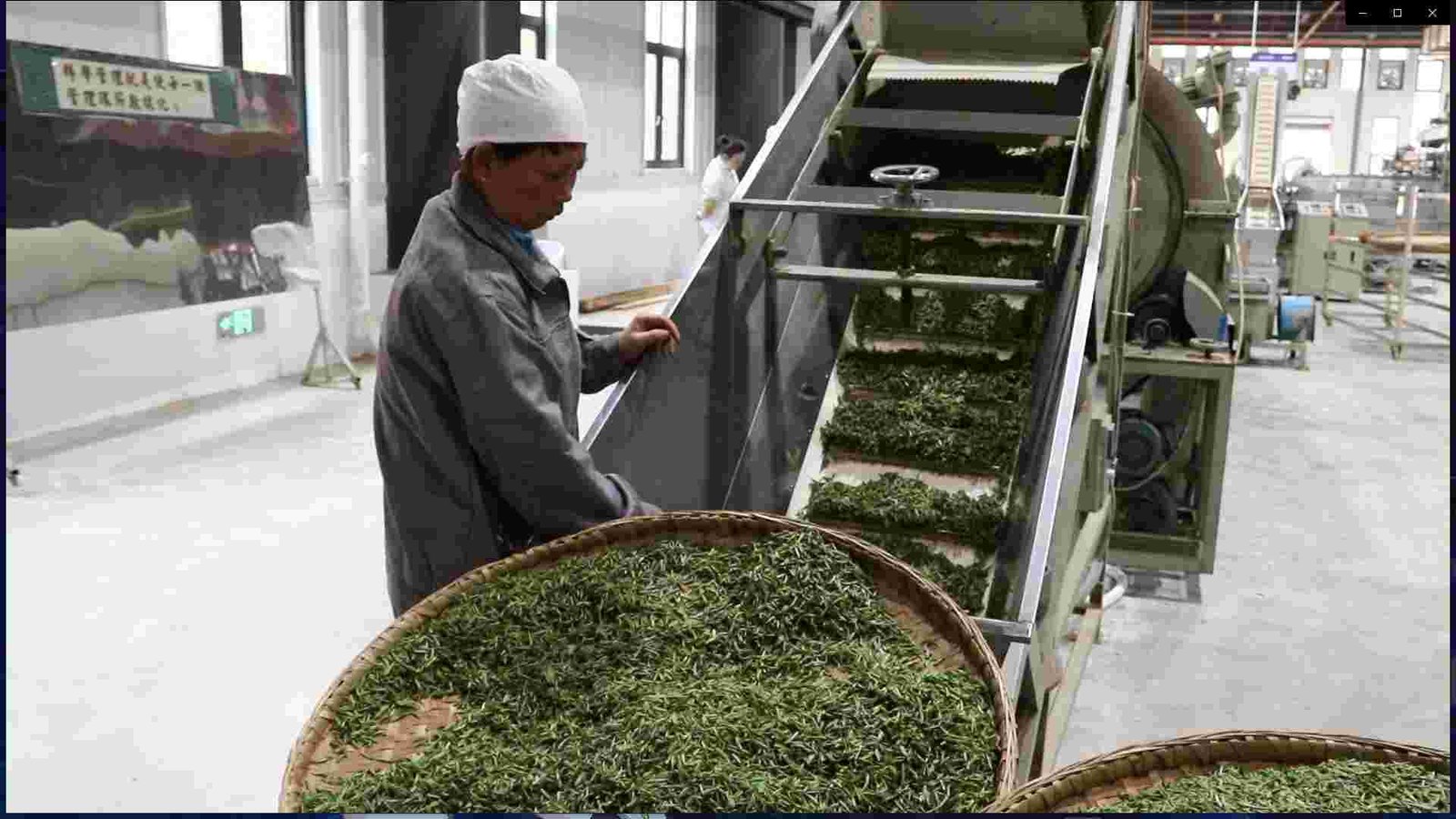
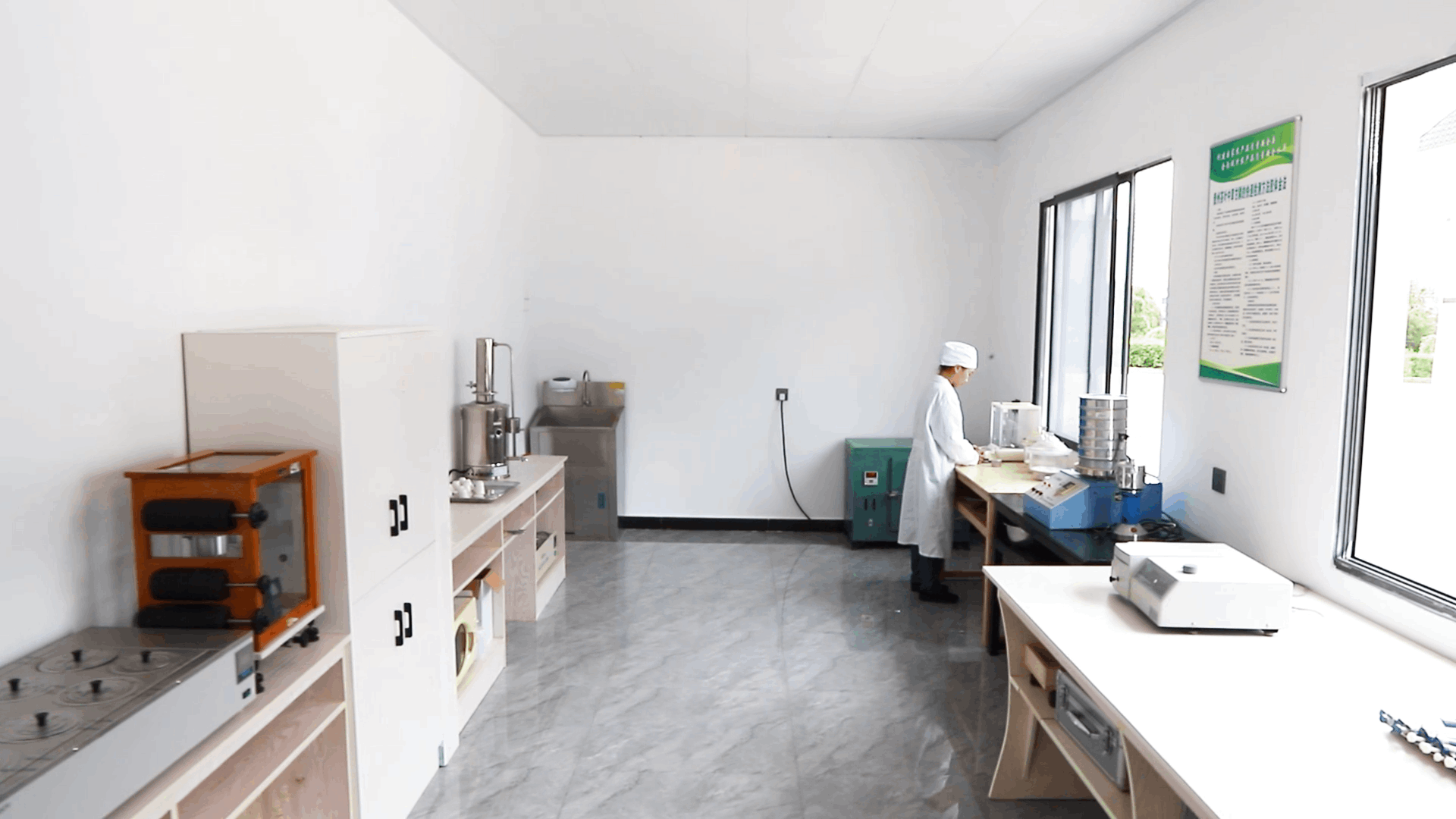
ust an 8-minute drive from TeaChuck’s tea gardens, the Guizhou Lixiang Tea Organic Processing Facility in Meitan Industrial Park is where tradition and modern science unite. Spanning 53,000 sq.ft, this facility merges Ming Dynasty techniques with cutting-edge organic standards:
All of TeaChuck’s teas are produced here.
China Organic Processing Certification (No.495OP2300015):
Passes 4 unannounced annual audits to ensure every step—from fresh leaves to finished tea—meets:
✅ Zero synthetic additives
✅ Pure bamboo charcoal roasting
✅ Dedicated organic production lines (fully isolated from non-organic teas)
18-Step Artisan Process:
Under Master Liu’s 30-year expertise, each batch undergoes:
Natural Withering: 8 hours on bamboo trays, humidity strictly controlled at 68-72%
Charcoal Lock-In: 36-hour roasting with 600-year-old oak charcoal to seal floral notes
AI Precision: Spectral scanners reject leaves with color deviations (accuracy: ΔE≤1.2)
A: While we respect USDA standards, our certifications meet even stricter benchmarks:
EU Organic (DE-ÖKO-069): Validated by Germany’s rigorous Bundesprogramm Ökologischer Landbau.
China Organic (CNAS-ILAC): Audited annually with 528-pesticide residue tests.
A: Yes. Here’s how we guarantee purity:
Bird Guardians: 17 native bird species control pests naturally.
Closed Ecosystem: Tea trees grow wild with pest-repelling herbs like Gynostemma pentaphyllum.
A: Our eco-actions speak louder than words:
Carbon-Negative Footprint: Each pound of tea absorbs 2.3kg CO₂ via 300-acre ancient tea forests.
Zero Waste Processing: 98% of tea residues become fertilizer or artisan paper.
Wildlife Corridors: The crisscrossing tea – garden corridors are the paradise for many wild animals, such as wild chickens, hares, bamboo rats, etc.
For more information, please contact us.

Purchase any single product
